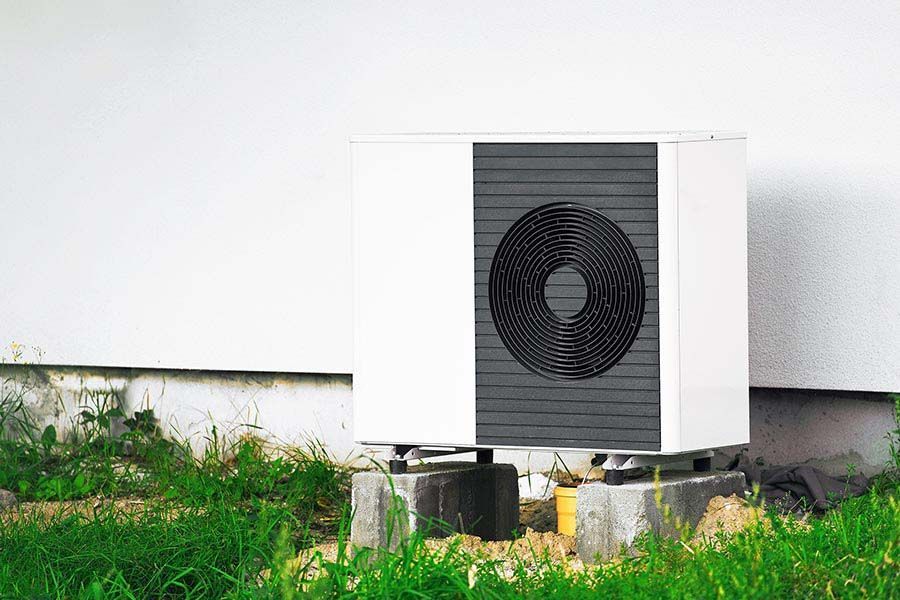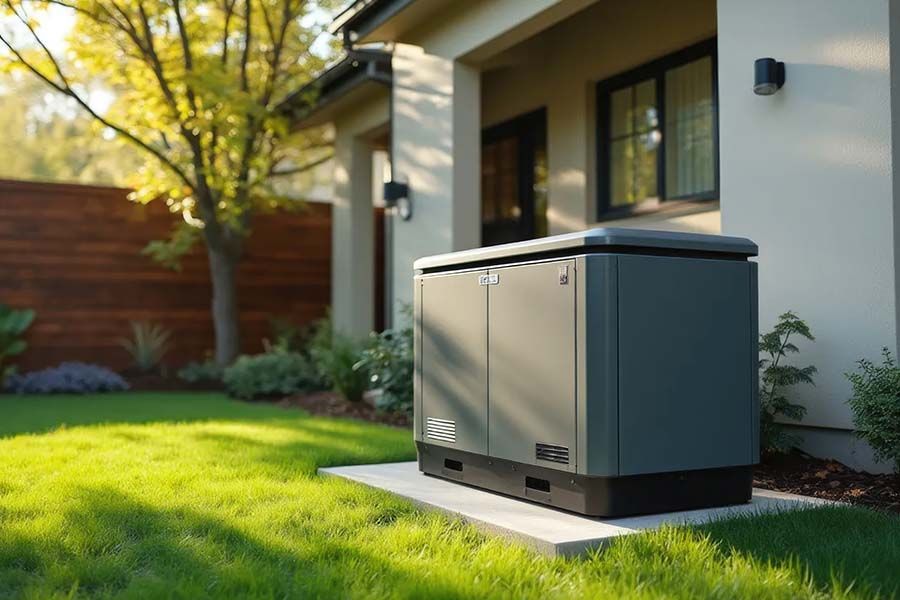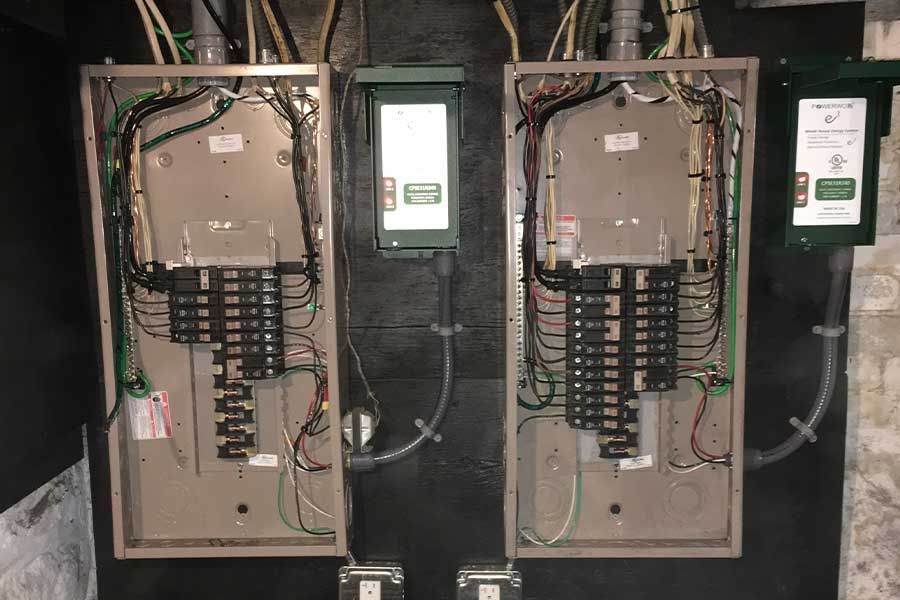What Type of Burner Do Most Modern Furnaces Use?
Whether you are updating an old furnace or choosing one for the first time, you may be wondering, "What type of burner do most furnaces use?"
An outdated furnace wastes both energy and money. On average, the life of a furnace is about 15 years. If your furnace is more than 15 years old, it is time to call a professional technician.
Port Washington’s furnace installation service experts at Professional Services are available 24/7. Whether you are facing a heating emergency or just need to schedule a routine inspection, you can call our experts in Port Washington, Wisconsin, at 262-218-2636.
What Is the Furnace Burner?
The furnace burner is an essential part of your furnace when it comes to efficiency.
The burner combines fuel with cool air. Working in conjunction with the heat exchanger, the furnace burner raises the temperature of airflow within your home. When determining the AFUE rating of your furnace, the burner plays an integral role in achieving a high-efficiency rating.
Your Options for Furnace Burners
If your gas furnace hasn’t been updated recently, it most likely uses an upshot burner. When it comes to efficiency and saving money on your heating bill, upshot burners are the less favorable option. Older furnaces tend to be less efficient across the board.
The more favorable type of furnace burner is an inshot burner. Inshot burners are safer than upshot burners and can handle the heating demands of large and small homes.
What Type of Burner Do Most Modern Furnaces Use? The Answer Is Clear
So what type of burner do most modern furnaces use?
You can find inshot burners inside most types of furnaces. In addition to their capability to heat homes of all sizes, they contribute to a higher AFUE rating. Since inshot burners are not within the home, the danger of a noxious backdraft carried by an upshot burner is not a concern.
High-efficiency furnaces use inshot burners. If you are unsure whether your furnace uses an upshot burner or an inshot burner, schedule an inspection with a trained professional.
Signs Your Burner Is Outdated
In the past, most furnaces used a standing pilot light. Today, when a trained HVAC professional surveys your furnace and finds a standing pilot light, they have all the information they need to tell you your furnace is outdated.
Though a standing pilot is tiny, it is highly wasteful as it requires fuel to burn continuously. In addition, pilot lights are easy to blow out accidentally, and relighting them can be unsafe.
Today, there is a safer, more efficient option called an intermittent pilot light. Instead of burning fuel all day and night like the pilot lights of yesteryear, the intermittent pilot light only activates when the furnace turns on. When an intermittent pilot light heats up the burner, it only uses a small amount of fuel.
Maintaining Your Burner with Regular Inspections by a Professional
No matter how modern a furnace you own, regular maintenance is the best way to ensure the longevity of your unit. An annual inspection by a trained HVAC specialist can help identify minor damage before it requires major repair. HVAC professionals know just what to look for to prevent you from ending up with a huge furnace repair bill and a chilly home.
Damage Your HVAC Technician May Discover
There are a handful of things that may become apparent during a routine furnace inspection. While these issues are small, neglecting to repair them can lead to bigger problems in the future.
Dust and Dirt
If a significant amount of time has passed since you had professionals inspect your furnace, there could be a growing pile of debris inside. If the furnace filter is dirty, a blockage may form, making your furnace noisy and unable to heat to temperatures necessary to keep you warm.
A trained professional can rid your furnace of dirt. Between professional cleanings, changing the furnace filter regularly will keep debris at bay.
Fractures in the Burner
Furnace burners consist of metal, which enlarges when the furnace is in use and narrows as it cools off. While this is a normal process, the metal weakens over time. Even with routine maintenance, the burner can eventually begin to fracture.
A fractured burner can be dangerous. Small cracks in the metal can grow into major ones if they go ignored, making repair more costly. During the annual inspection, a trained professional will examine the burner for signs of fracture.
Cosmetic Damage
The appearance of metal changes over time. These changes are normal but require occasional monitoring to avoid a fire hazard.
Your HVAC technician may discover rust on your burner. While rust isn’t a huge deal, it can end up causing lasting damage if you don't remove it in time.
When there is a significant level of buildup on the burner, it can flutter around inside your furnace, creating dangerous sparks. If rust develops on your burner, make sure you hire a professional to remove it before things get out of hand.
Inaccurate thermostat
If you keep turning up the thermostat but find your furnace is not heating your home as well as it should, let your HVAC technician know during their inspection. Your furnace burner may need to be recalibrated in order to warm your home efficiently.
Adjusting your furnace burner is a routine activity during a regular maintenance inspection. After the adjustment, you should notice an immediate improvement in the temperature accuracy inside your home.
Don’t Wait Until Your Furnace Malfunctions
You should expect wear and tear on your furnace to occur from year to year. Responsible furnace ownership begins with asking the question, "What type of burner do most modern furnaces use?" Now that you know the answer, you can work with a skilled professional to extend the life of your furnace.
At Professional Services, we offer various maintenance plans to suit your needs and your budget. Call our experts in Port Washington, Wisconsin, at
262-218-2636 to schedule furnace maintenance or repair today.
You might also like







